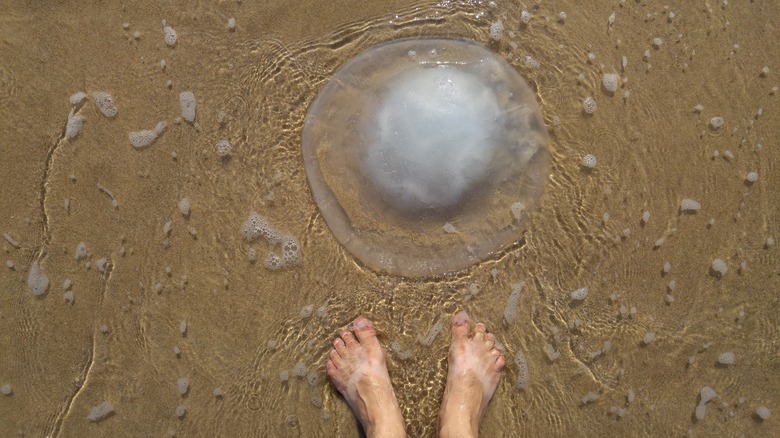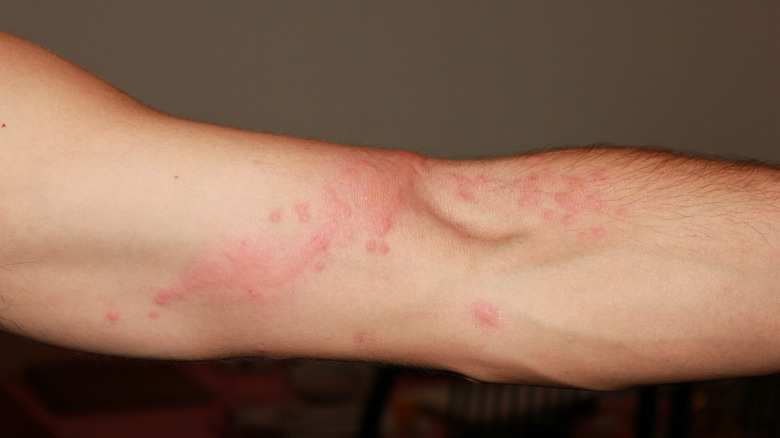Does Peeing On A Jellyfish Sting Actually Work?
We've all heard that the first thing to do when you get stung by a jellyfish is to pee on it. But is this actually true? Here's what you should know about this common remedy.
Let's first look at what happens when a jellyfish stings you. According to Smithsonian Magazine, jellyfish have cells on their tentacles called cnidocytes that contain venom called nematocysts. When a jellyfish's tentacle touches you, the nematocysts "can penetrate human skin in less time than it takes you to blink" and send venom into your body. This causes pain, redness, and, in some cases, blistering. Many jellyfish stings are harmless while others can be life-threatening.
According to Healthline, there is "no truth to the myth that peeing on a jellyfish sting can make it feel better" or go away. Some people may have thought that urine, which contains ammonia and urea, could change the compounds of the jellyfish venom to soothe a sting. In reality, urine can actually cause the stingers stuck in your skin to release more venom and make your sting even worse.
There is a simple method to soothe your sting
Even though peeing on a jellyfish sting is not the best thing to do, there are other simple ways to treat this painful occurrence. First, rinse the affected area with distilled vinegar or hot water (via Verywell Health). Vinegar may not work for some species of jellyfish, so hot water should be your first method of cleaning when possible. If hot water or vinegar are not available, use salt water to rinse the area.
After rinsing the sting, use tweezers or gloved hands to pluck off any remaining tentacles on the skin. Don't let the tentacles touch your bare hands or you may get stung yourself. Once the tentacles are removed, you should soak the affected area in a hot bath with the "hottest water you can stand" for maximum pain relief.
Pain from a jellyfish sting can last anywhere from an hour to several weeks, depending on the species and the severity of the sting. If you experience pain for longer than 24 hours, visit your doctor to make sure the sting is treated properly. You should also contact 911 if you experience symptoms of an allergic reaction like shortness of breath, dizziness, or weakness.


